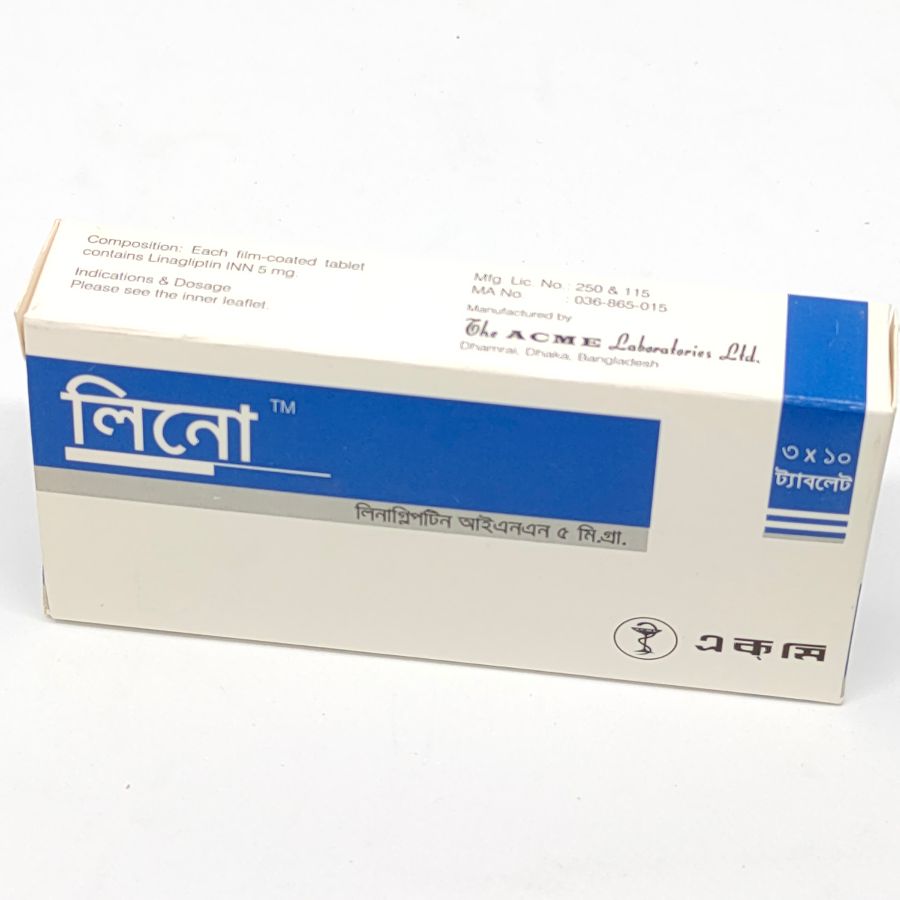
Type:10 Tablets
Generic Name:Linagliptin
Manufacturer:The ACME Laboratories Ltd.
Price:৳200.00
Type 2 Diabetes Mellitus
May administer with or without food
Oral Type 2 diabetes mellitus Adult: 5 mg once daily. Indicated for adults with diabetes mellitus type II along with diet and exercise to lower blood sugar; may be used as monotherapy or in combination with other common antidiabetic medications including metformin, sulfonylurea, pioglitazone, or insulin. Elderly: No dose adjustment is necessary based on age. Hepatic or renal impairment: No dosage adjustment required.
Safety and efficacy not established
Renal Impairment: No dose adjustment.
Patients with a history of a hypersensitivity reaction to linagliptin, such as urticaria, angioedema, or bronchial hyperreactivity. Type 1 DM. Treatment of diabetic ketoacidosis.
Dipeptidyl peptidase 4 (DPP-4) inhibitor; increases and prolongs incretin hormone activity which is inactivated by DPP-4 enzyme. Incretins regulate glucose homeostasis by increasing insulin synthesis and release from pancreatic beta cells and reducing glucagon secretion from pancreatic alpha cells .
Concomitant use w/ sulphonylureas which are known to cause hypoglycemia; dose reduction of sulphonylureas may be considered. May affect ability to drive or operate machinery. Childn. Elderly >75 yr. Pregnancy & lactation. Lactation: Unknown whether distributed in breast milk; caution advised
1-10% Nasopharyngitis (4.3%),Hyperlipidemia (2.8%; with pioglitazone),Cough (2.4%; with metformin and sulfonylurea),Hypertriglyceridemia (2.4%; with sulfonylurea),Weight gain (2.3%; with pioglitazone), Hypoglycemia 7.6% overall incidence, 22.9% incidence compared with placebo plus metformin and a sulfonylurea Incidence similar to placebo with monotherapy or combined with metformin or pioglitazone
Increased risk of hypoglycaemia when used w/ an insulin secretagogue (e.g. sulfonylurea) or insulin. Plasma concentration of linagliptin may be decreased by strong inducers of P-glycoprotein (e.g. rifampicin) and may be increased by strong P-glycoprotein inhibitors (e.g. ritonavir).